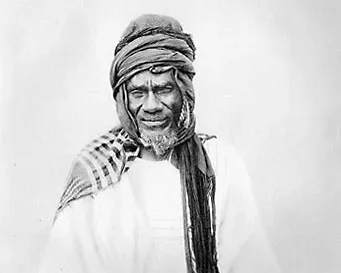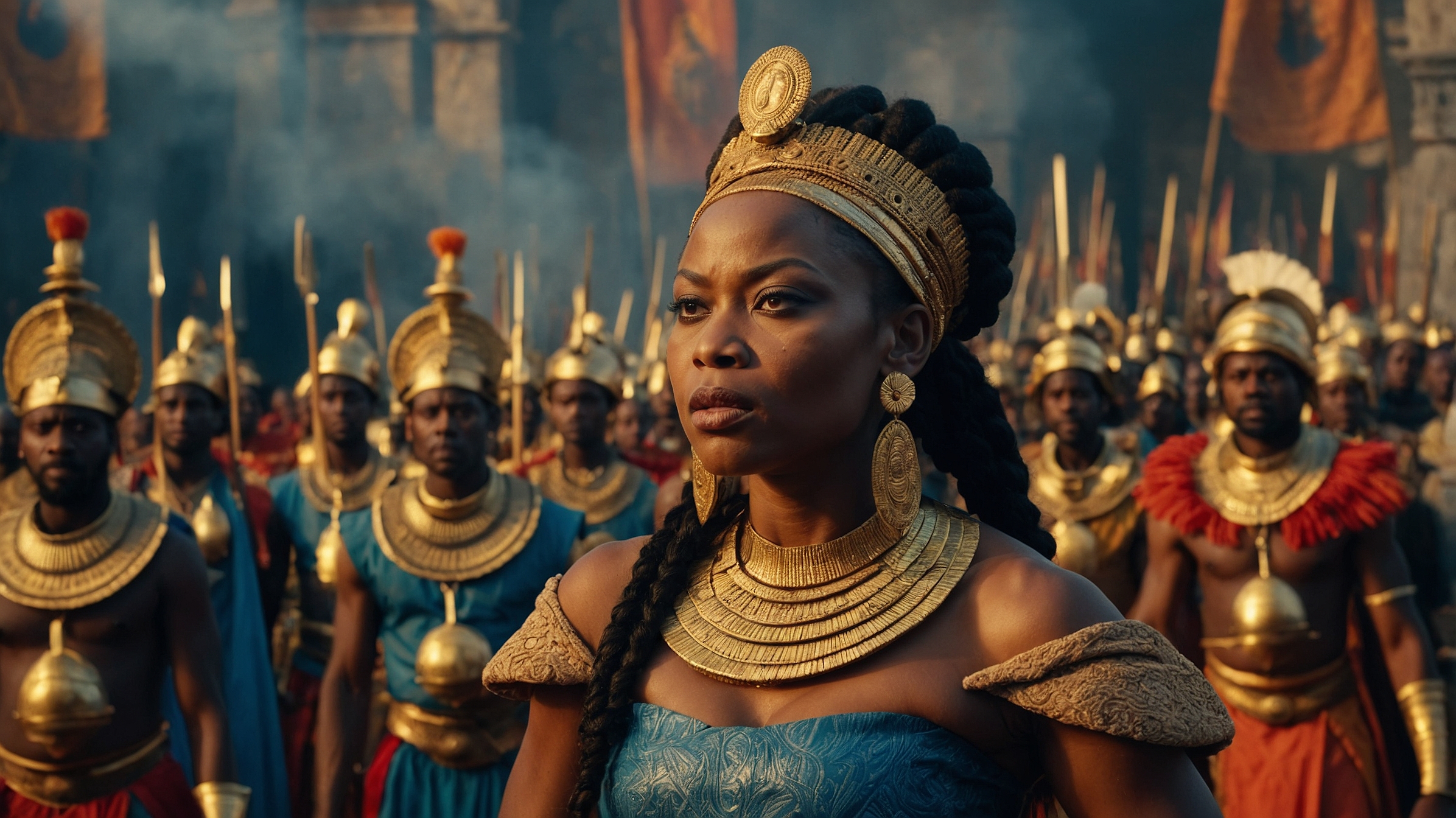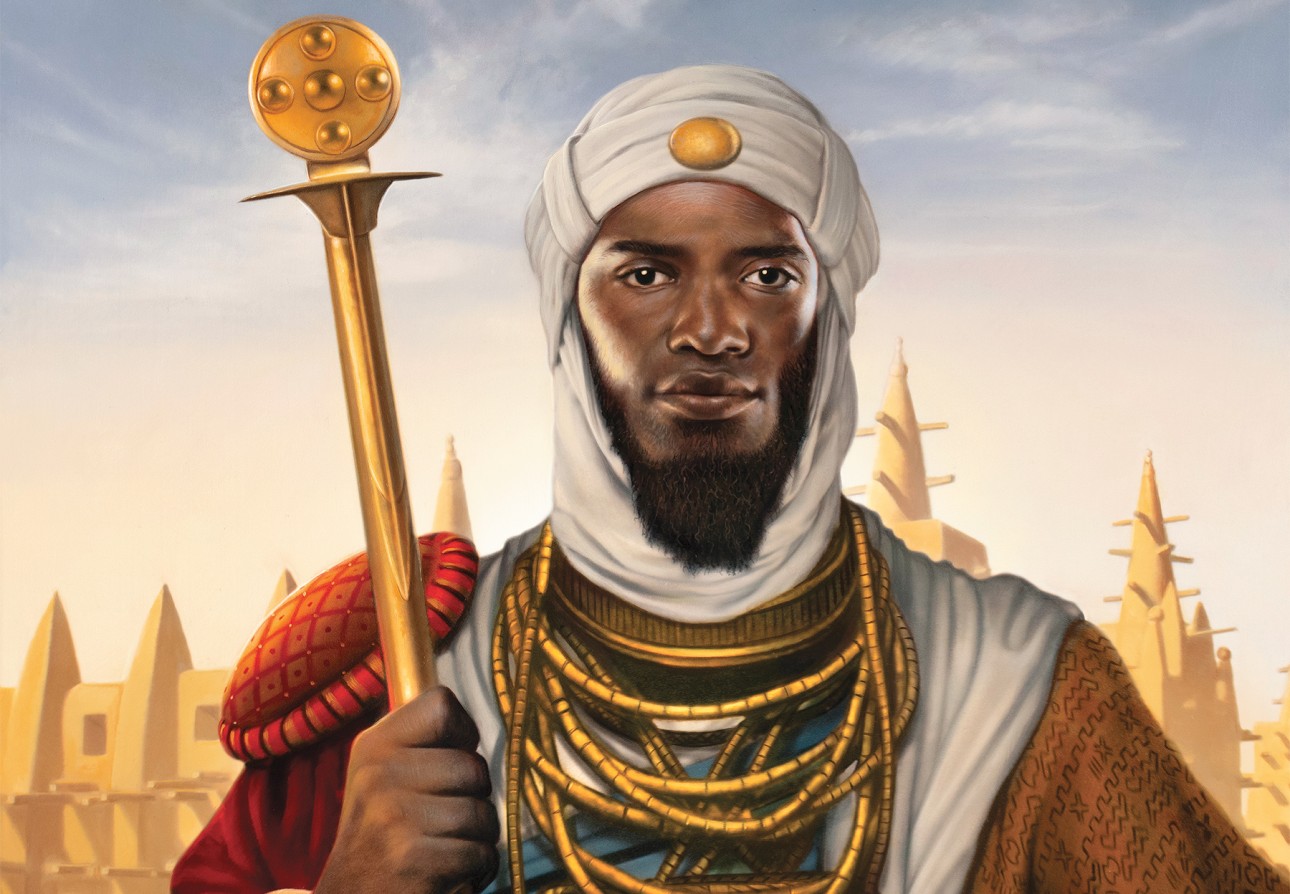Famous for his diplomatic savvy, unwavering resistance to French colonization, and formidable military skills, Samori Touré is an iconic character in West African history. Coming from a family of merchants in what is now Guinea, Touré rose from humble beginnings to become the brilliant strategist and founder of the Wassoulou Empire. He was born in the Milo River valley around 1830. The intricacies of African resistance to colonialism can be better understood through his enduring legacy.
Early Life and Rise to Power
The Dyula people, of which Samori was a member, were highly integrated into West African social and economic networks due to their reputation for excellence in trade and business. His perspective on life was shaped by the many civilizations and political systems he encountered along the Dyula’s vast trading routes. An important turning point came in 1848 when the Cissé clan captured his mother, Sokhona Camara, during a raid. With unwavering filial piety, Samori served the Cissé for about seven years after bartering his freedom for her enslavement. He became a devout Muslim during this time and strengthened his military might; his conversion to Islam would later shape his leadership style and the ideology that underpinned his empire.
Once Samori had fulfilled his duty, he went back to his hometown and set out to consolidate control among the Malinké. He began a string of wars in 1861 to unite different chiefdoms under his control after rising to the position of important military leader, or kélétigui. His diplomatic efforts, strategic marriages, and military conquests formed the basis for the strong Wassoulou Empire, which he later expanded.
Formation and Expansion of the Wassoulou Empire
Samori gradually extended his empire from 1864 to 1878, creating a unified state that included what is now Guinea, Mali, Côte d’Ivoire, and Burkina Faso. The organized government he instituted allowed for efficient control over the varied provinces, a testament to his administrative prowess. His expansionist plan revolved around building an overwhelming army, with 30,000 to 35,000 infantry and about 3,000 cavalry. Modern firearms were initially acquired through commerce with British-controlled Sierra Leone and were used by this armed force. Samori later set up local workshops to make and fix weapons, demonstrating his dedication to maintaining his military capabilities and the significance of self-reliance.
Military Strategies and Resistance Against French Colonial Forces
The late 19th century was marked by aggressive French expansion into West Africa, bringing them into direct conflict with Samori’s ambitions. Initial confrontations began in the early 1880s as the French aimed to extend their control over resource-rich regions. Samori’s military strategies were multifaceted; he adeptly employed both conventional and guerrilla warfare tactics to counter French advances. His deep understanding of the terrain, combined with swift mobility, allowed his forces to execute surprise attacks and strategic retreats effectively. This adaptability earned him the moniker “the African Napoleon,” a testament to his tactical brilliance.
The French military’s logistical and technological advantages posed significant challenges notwithstanding his best efforts. After several confrontations, Samori and the French finally reached an agreement in 1886 through the Treaty of Kéniéba-Koura, which recognized French territorial claims and temporarily halted hostilities. But the shaky truce didn’t last long because of infractions on both sides, which sparked a new round of fighting. Samori’s resilience was evident as he continued to adapt his strategies, including implementing scorched-earth tactics to deny resources to advancing French troops.
Religious Influence and Statecraft
Samori’s embrace of Islam was not merely a personal conviction but a cornerstone of his state-building efforts. He positioned himself as a religious reformer, integrating Islamic principles into the governance of the Wassoulou Empire. Mosques were constructed, Quranic schools established, and Islamic law was promulgated, aiming to unify his diverse subjects under a common religious and legal framework. However, this imposition of Islam, particularly in animist regions, led to internal resistance and revolts, highlighting the complexities of religious integration in a multicultural empire.
Decline and Capture
In order to regroup and maintain his resistance, Samori began a deliberate withdrawal eastward in response to the unrelenting pressure from the French. This move, nevertheless, put a burden on his empire’s resources and made internal strife worse. His position had been severely undermined by 1898 due to the cumulative effect of ongoing military operations and resource depletion. French Captain Henri Gouraud seized Samori Touré in Guelemou, Côte d’Ivoire, on September 29, 1898. He was thereafter exiled to Gabon and died of pneumonia on June 2, 1900.
Legacy
Samori Touré’s legacy is multifaceted, embodying the spirit of resistance against colonial subjugation and the complexities of statecraft in pre-colonial Africa. His efforts to establish a unified and independent state demonstrated a sophisticated understanding of governance, military strategy, and diplomacy. Notably, his great-grandson, Ahmed Sékou Touré, became the first President of Guinea, leading the nation to independence in 1958. Samori’s life and endeavors continue to be emblematic of African resilience and the enduring quest for sovereignty.
In summary
Samori Touré’s narrative is a testament to the complexities of African resistance during the colonial era. His strategic brilliance, coupled with his commitment to religious and political autonomy, underscores the multifaceted challenges faced by African
References
BlackPast.org – “Samori Touré (1830–1900)”
https://www.blackpast.org/global-african-history/toure-samori-1830-1900
(Detailed biography, resistance leadership, legacy, and impact.)
Wikipedia – “Samori Ture”
https://en.wikipedia.org/wiki/Samori_Ture
(Timeline of his empire, battles with the French, statecraft.)
Wikipedia – “Samorian state”
https://en.wikipedia.org/wiki/Samorian_state
(Details about religious governance and structure of the Wassoulou Empire.)
Britannica – “Samory”
https://www.britannica.com/biography/Samory
(Background on his reign and resistance movement.)
TRT World – “Samory Touré: A Legendary African Muslim King Who Fought French Colonialism”
https://www.trtworld.com/magazine/samory-toure-a-legendary-african-muslim-king-who-fought-french-colonialism-32909
(African media source highlighting his religious identity and warfare against French imperialism.)
ZAM Magazine – “Essay: Samori Touré Influenced the Making of Africa Like No One Else”
https://www.zammagazine.com/boekenclub/1697-essay-samori-toure-influenced-the-making-of-africa-like-no-one-else
(African scholar perspective on his long-term influence.)



Leave a Reply